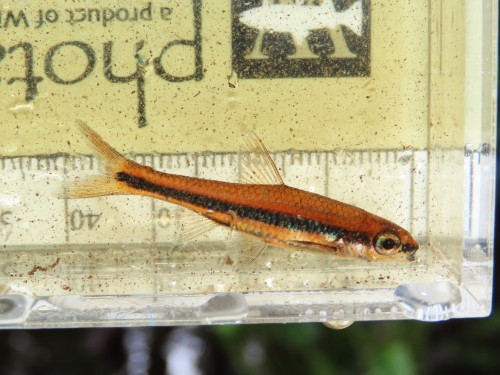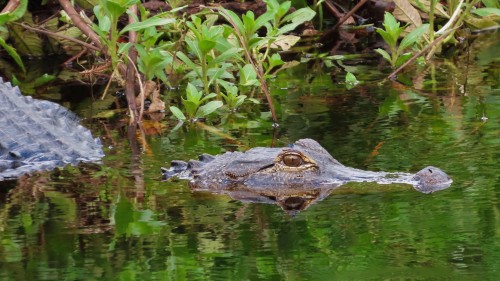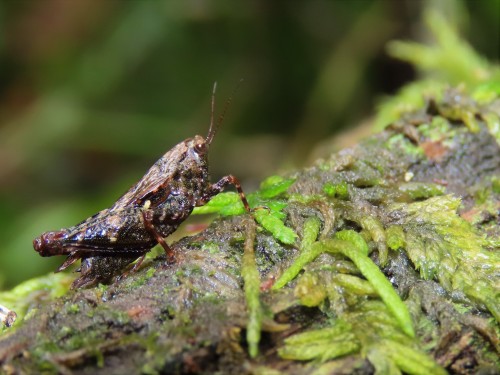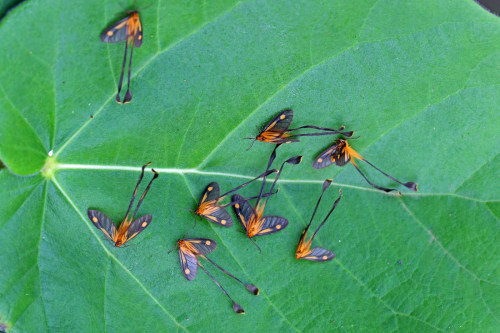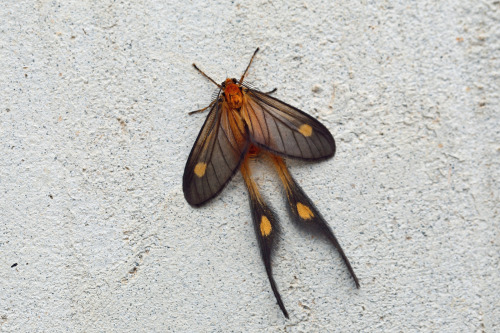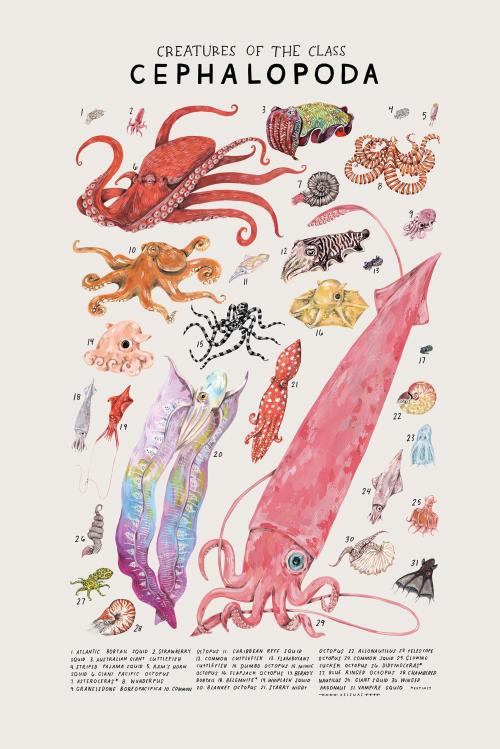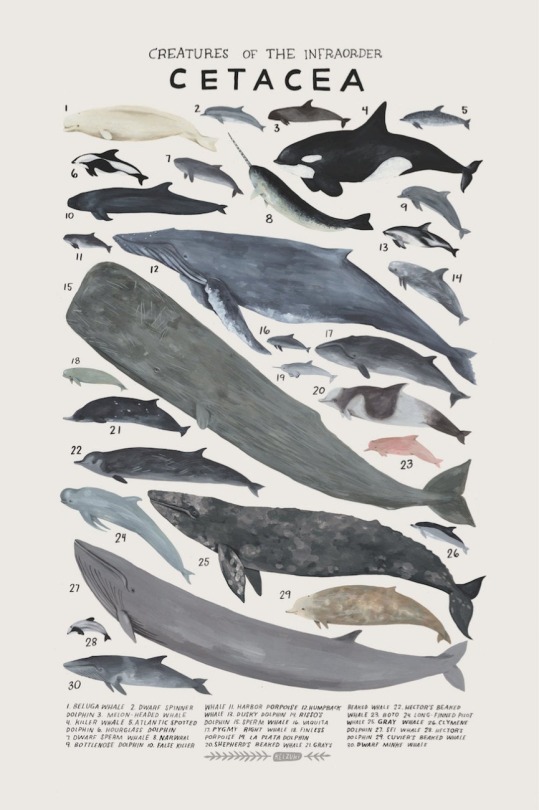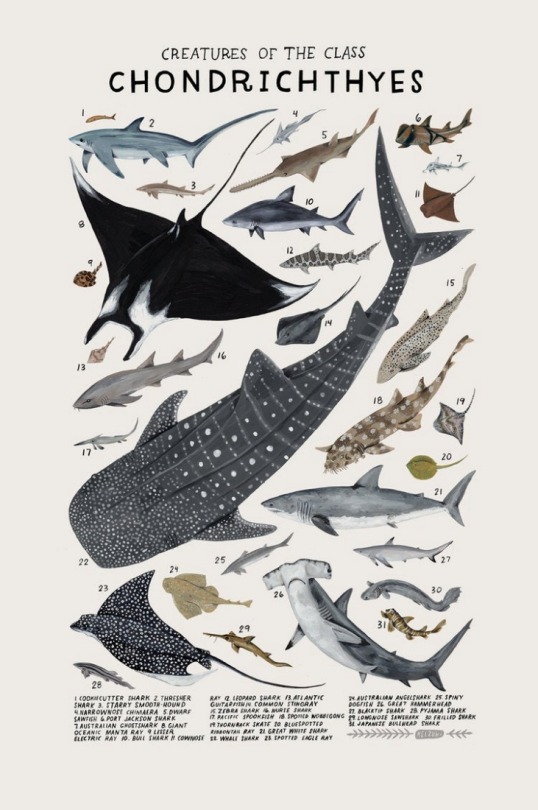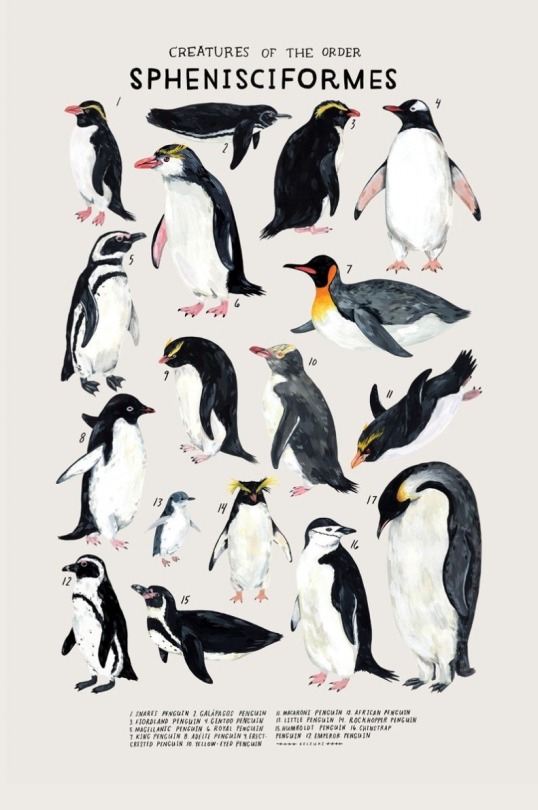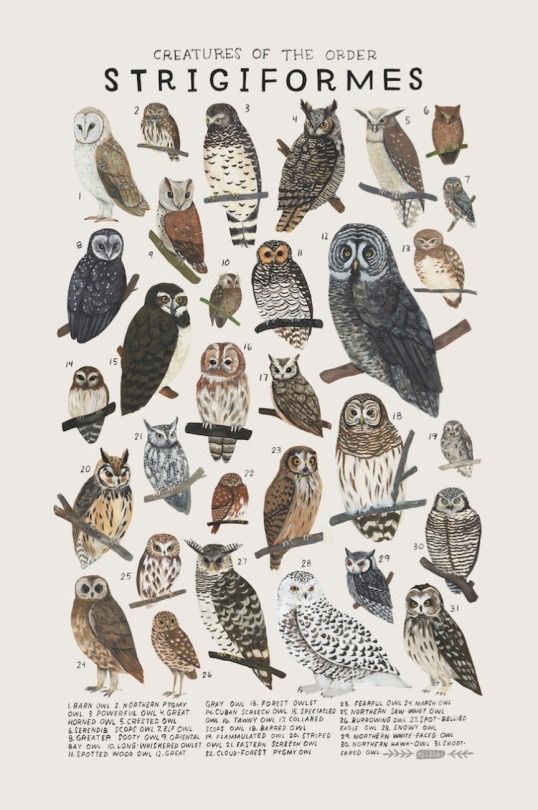Insects - Tumblr Posts

having my evening cucumber
I offered a portion to this large and mannerly horse
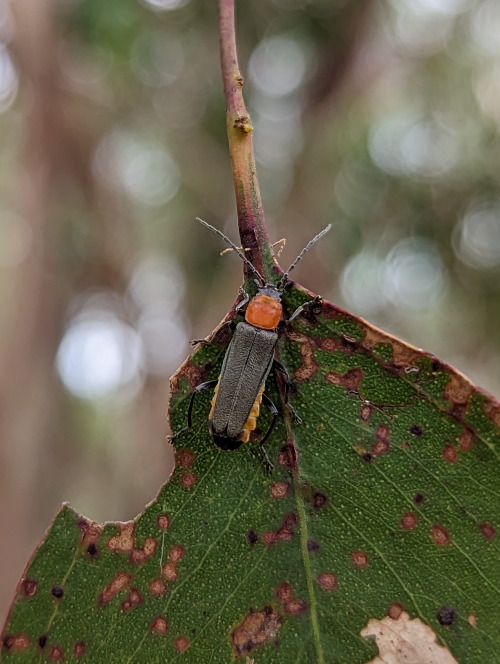
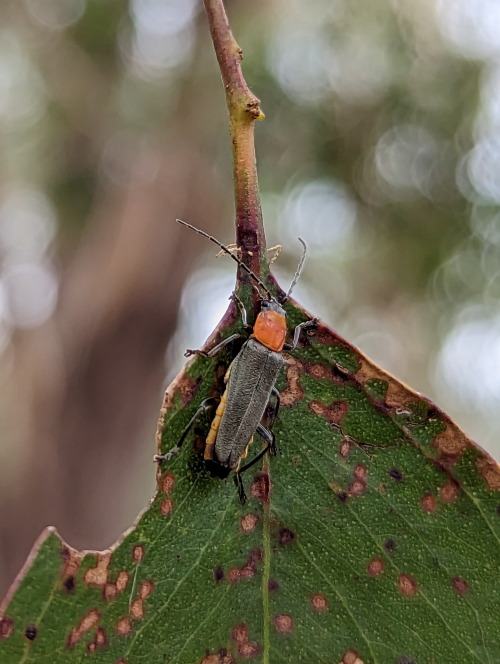
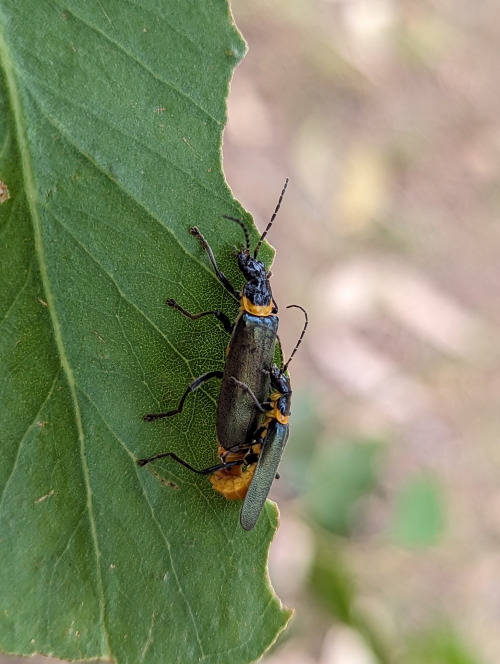
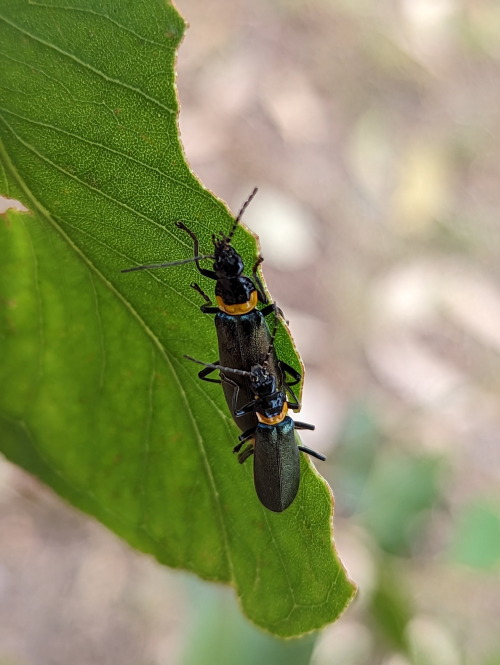
The Soldier Beetles I Found
Photos 1-2 - Chauliognathus tricolor Photos 3-4 - Chauliognathus lugubris
20/03/23
I'm so sorry if you've talked about this already but I just saw it and you were the first person I thought of
Anyways have you seen this absolutely INSANE rove beetle
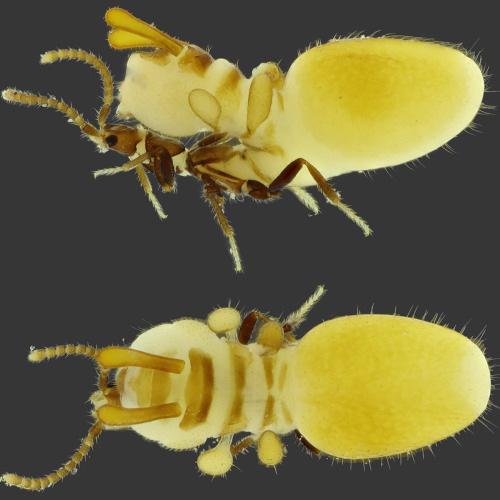
I HAVE HOPED TO SEE ACTUAL CLEAR PHOTOGRAPHS OF THIS FOR YEARS. I have seen nothing but scientific drawings and some microscopy slides!!! Oh my god it looks even sillier and more far-fetched than I thought it would. I want everyone to know before they carelessly continue scrolling that this is how the beetle pretends to be a termite and freeloads in termite society and the entire fake termite is just the beetle's abdomen. If you look closely you can see that's what it is, that it just has a massive weird butt so big it can hide entirely under its own butt and that it (the butt) is shaped like a different, inflatable decoy bug with fake antennas and fake legs.
Just four fake legs because it did not study entomology but luckily neither have the termites.
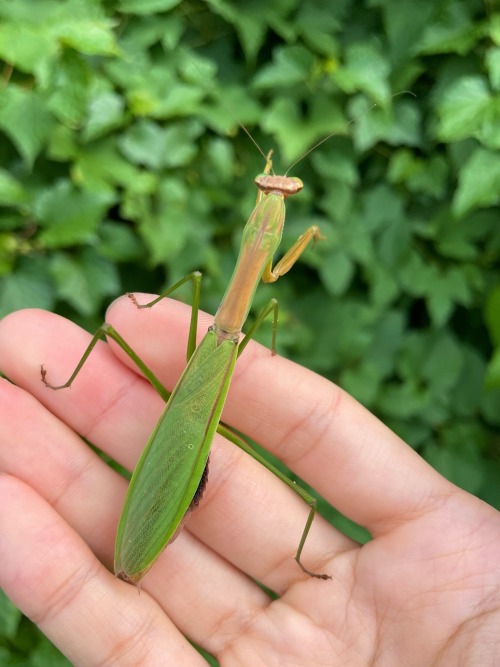
here’s an interesting female Chinese mantis I found hanging out in a porcelainberry patch. the yellow neck and green body is a very common color morph in males, but this is the first female I’ve seen who wasn’t a fully green or brown morph. she’s rather tiny for a T. sinensis too
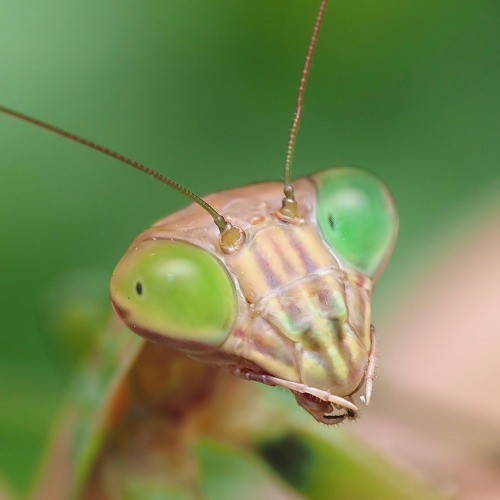
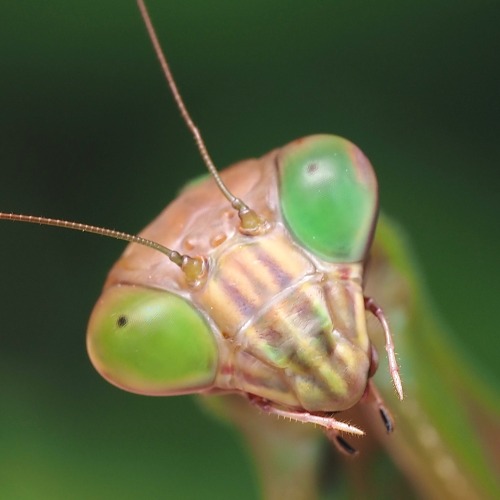
she also had “heterochromia,” with one eye a bluer shade of green than the other (doubt anything about this term applies to a compound eye, but what else would you call it?)
I wonder if I’ll see her again in the few weeks she’s got left, certainly a very distinctive individual
I see at least one cool bug a day, and usually many more, but it’s not because I live anywhere particularly rich in strange, wonderful creatures (I live in an unremarkable corner of Pennsylvania, USA) or spend all of my free time looking for bugs (well, just *most* of it). in my experience, finding interesting bugs is less about actually locating them and more about looking closely at tiny things you’d otherwise ignore!
this very long post was compiled over a couple days in late July, although I spent less than 10 minutes at a time searching. there’s a lot of fun creatures just out in the open.
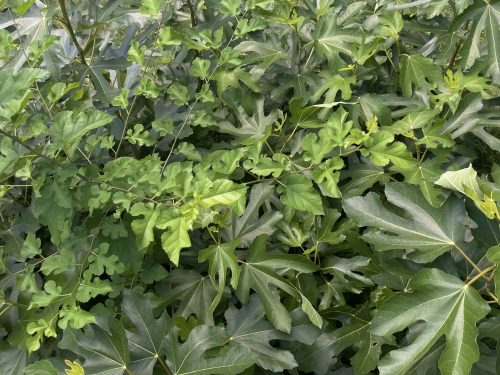
plants are always a good place to start when looking for bugs, and I chose this small fig tree (Ficus carica) with a mulberry sapling friend. feeding on the sap of the fig and mulberry is the first group I’ll take a look at, the planthoppers:
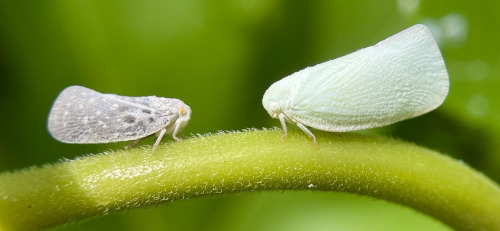
these two are flatid bugs, Metcalfa pruinosa and Flatormenis proxima. flatids are slow-moving bugs that can be approached closely, but once they get tired of circling around stems to avoid you they may launch themselves into a fluttering flight with spring-loaded rear legs.
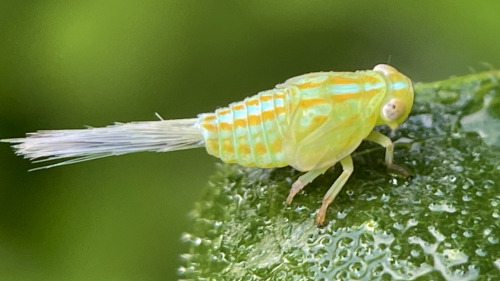
Aplos simplex, a member of the related family Issidae, also likes fig sap. its “tail” is actually a tuft of waxy secretions, which get shed along with the bright colors when it assumes a lumpy, bean-shaped adult form.
cicadellids, or leafhoppers, are just about everywhere on plants, but can be hard to approach without scaring them.
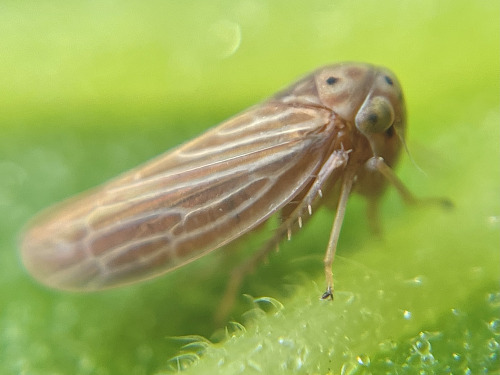
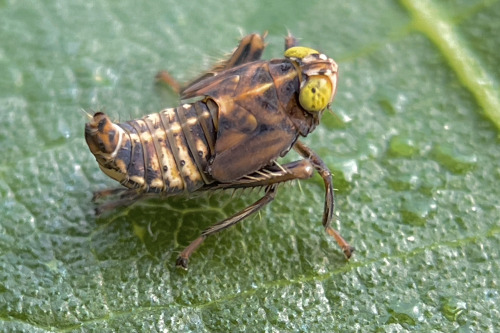
Agallia constricta on the left is a tiny species that feeds on grass, but many were scared up onto the fig by my footsteps. Jikradia olitoria is a much larger species that does feed on the fig; juveniles like this are curled, creeping goblins while adults’ rounded wings give them a pill-shaped appearance.
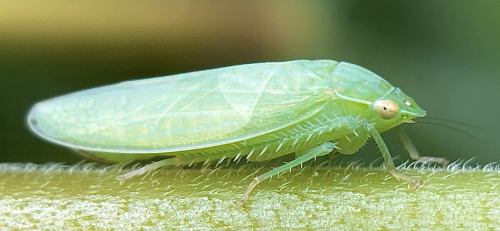
this big, pale leafhopper belongs to genus Gyponana. it’s tricky to get to species ID with these.
Graphocephala are striking little hoppers that eat a variety of native and nonnative plants. G. coccinea is the larger, more boldly colored one and G. versuta is smaller but more common locally. they’ll sit on the tops of leaves but take flight if you get too close quickly.
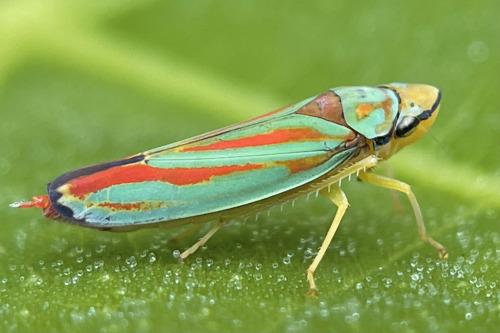
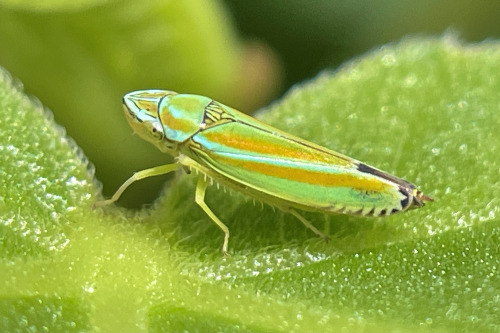
another group you’re almost guaranteed to encounter are flies (Diptera). these are a very diverse group, so much more than houseflies and mosquitoes (though I did run into both)
where I live, any plant with broad leaves is almost guaranteed to have a few Condylostylus, long-legged flies that come in shades of blue, green, and red. despite their dainty physique, they’re agile predators, typically feeding on other small flies.
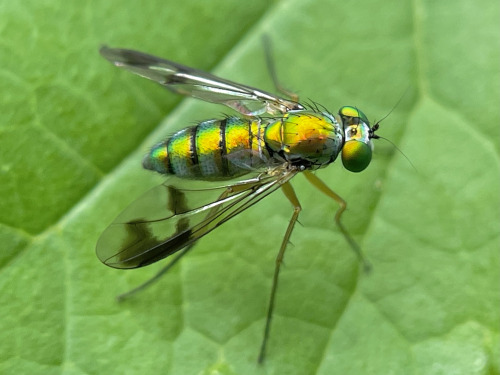
next, a few hoverflies: the ubiquitous Toxomerus geminatus and a Eumerus that I’ve been seeing a lot of this year (but maybe I’ve just noticed them for the first time). syrphids have varied life histories, but most adults drink nectar and many of the larvae are predaceous on aphids.
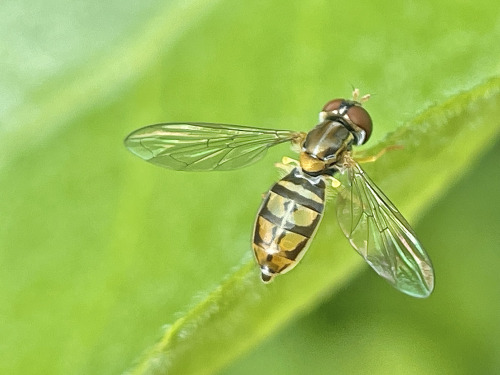
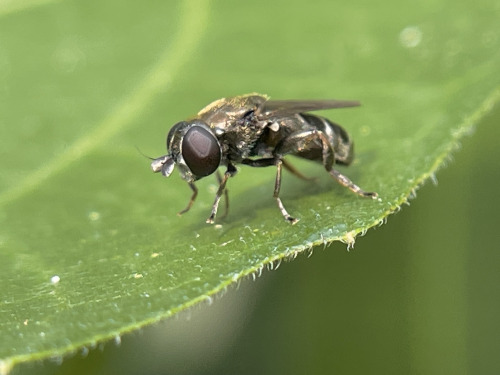
the metallic green soldier fly is Microchrysa flaviventris, nonnative here. Coenosia is a fun example of a “fly that looks like a fly,” with big red eyes and a gray body, and you might think they’re just another dung-sucking pest, but they’re actually aggressive predators! this one seemed to have nabbed itself some sort of nematoceran fly, maybe a fungus gnat.
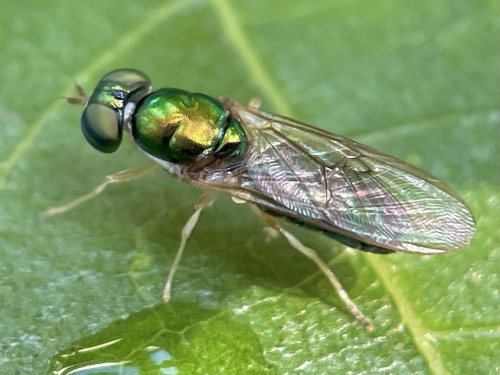
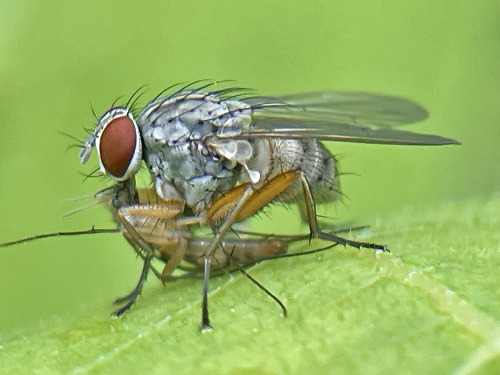
many flies are very tiny, just millimeters long. the first two little fellows are lauxaniids, while the last one, an agromyzid leafminer Cerodontha dorsalis, burrows through grass leaves as a larva.
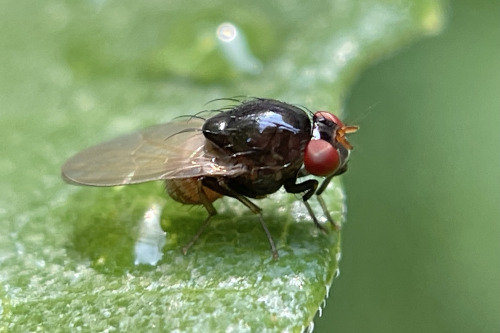
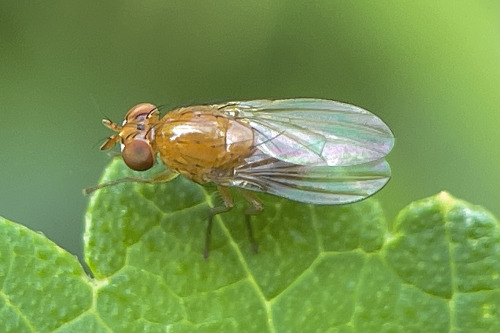
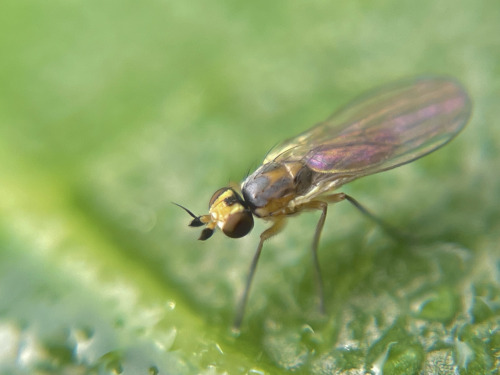
while moths and butterflies (Lepidoptera) are drawn to plants for their flowers or to lay eggs, many small moths can easily be found resting on or under leaves during the day.
these first two are tortricids, many of which are flat, rectangular moths resembling chips of bark or dead leaves. the apple bud moth, Platynota idaeusalis, feeds on a wide variety of hosts, while this beat-up old Argyrotaenia pinatubana would have developed in an edible tube nest of pine needles.
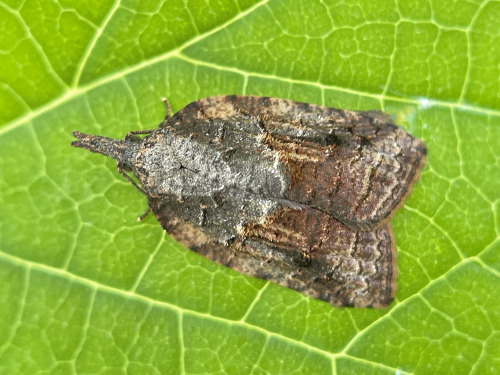
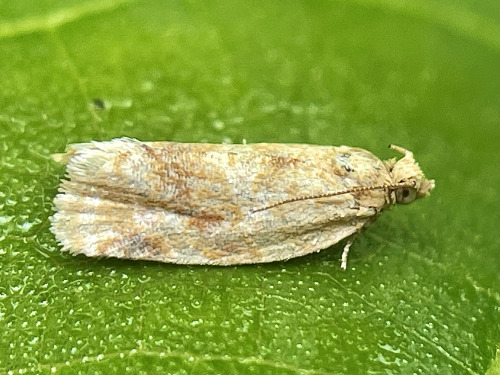
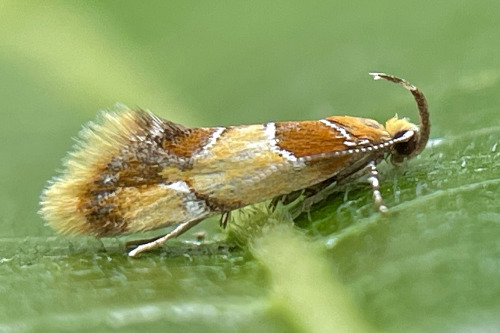
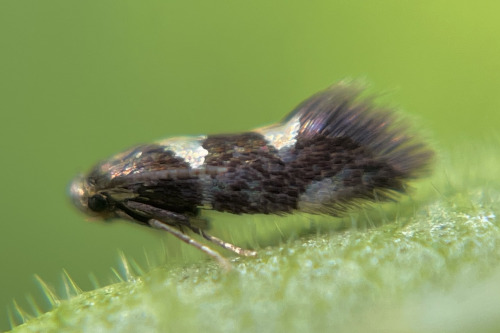
Callima argenticinctella feeds in bark and dead wood (a resource used by more caterpillars than you’d realize!) while the last moth, possibly an Aspilanta, is a leafminer.
although beetles (Coleoptera) are famous for their diversity, I didn’t find too many on the fig. the invasive Oriental beetle Exomala orientalis resting here can be found in a wide range of colors, from this common tan to to deep iridescent black. the other beetle is a Photinus pyralis firefly, sleeping under leaves as fireflies do.
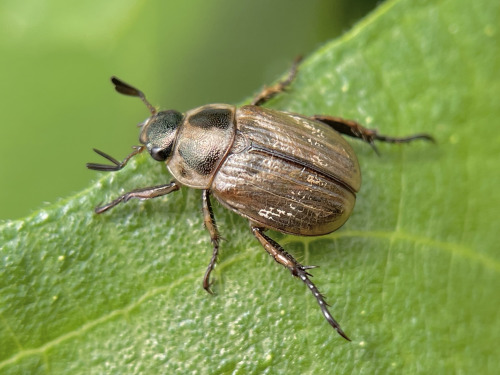
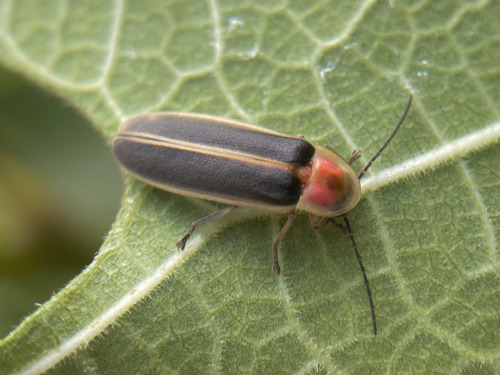
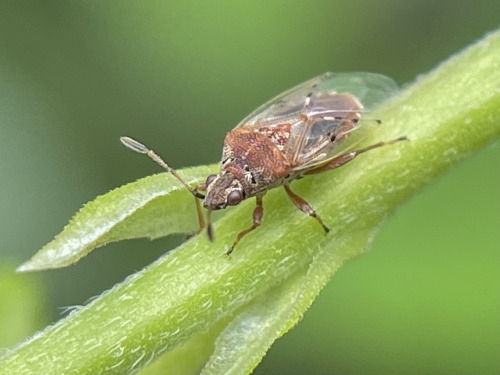
a few spare hemipterans: a Kleidocerys resedae that blew in on a wind, and below, the mulberry whitefly Tetraleurodes mori feeds on its namesake host. as for Hymenoptera, I saw manny tiny parasitic braconid wasps and various ants attracted to the planthoppers’ honeydew excretions—always worth checking underneath roosting hoppers for things having a drink.
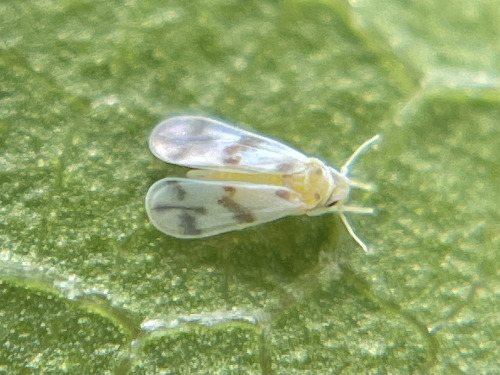
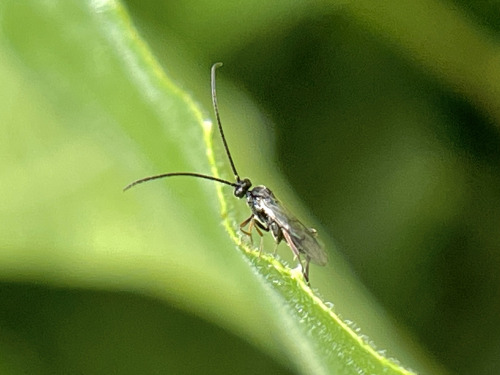
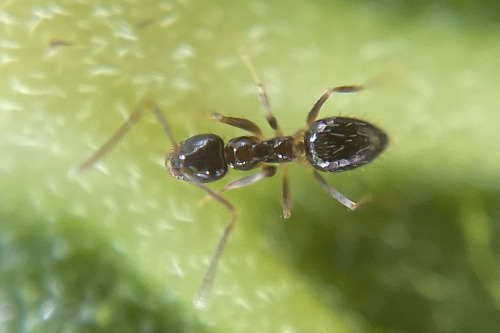
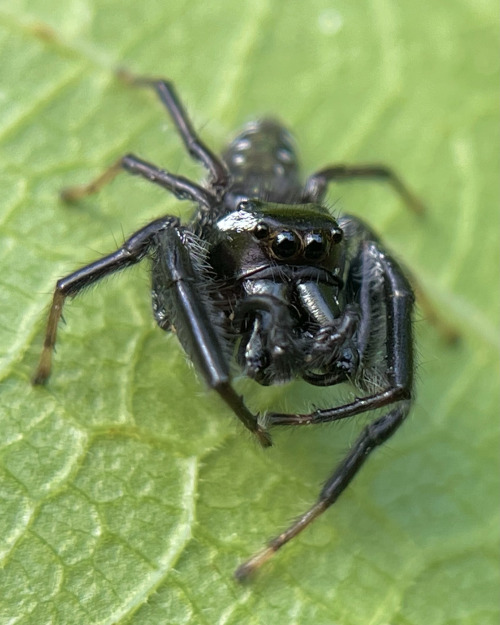
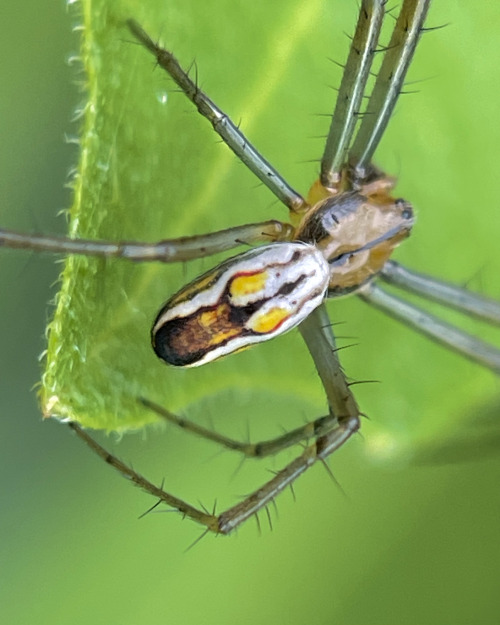
a couple handsome spider boys were scrambling through the fig seeking females, a jumping spider Paraphidippus aurantius and an orbweaver, Mecynogea lemniscata.
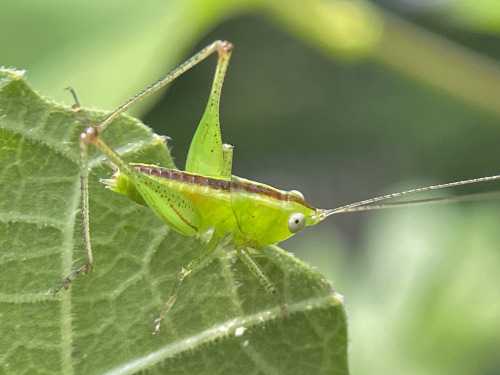
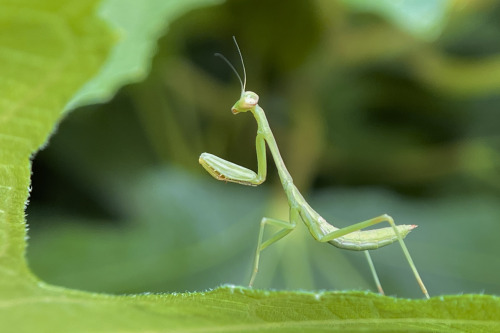
and to round it off, a young Conocephalus meadow katydid and a Carolina mantis, Stagmomantis carolina.
there’s 31 species of arthropod in this post, and I probably saw some 45, not all of which stayed for photos. if you walk slowly and look closely, you can see a sizeable chunk of your local biodiversity in under fifteen minutes! of course this will depend on where you live and what time of year it is, but there’s almost always more cool bugs out there than you’d expect, even on just a single plant.
there is nothing more humbling than being a birder on inaturalist. irl people will think you're some kind of bush tucker druid god if you can tell male and female magpies apart, but on inat you're nothing. anyone can do birds. the only aves records that still need ids are heavily decomposed corpses, single feathers, or thornbills

the bug people are out here fighting over the veins in the wings of 4mm flies, you pale in comparison to what they've got going on
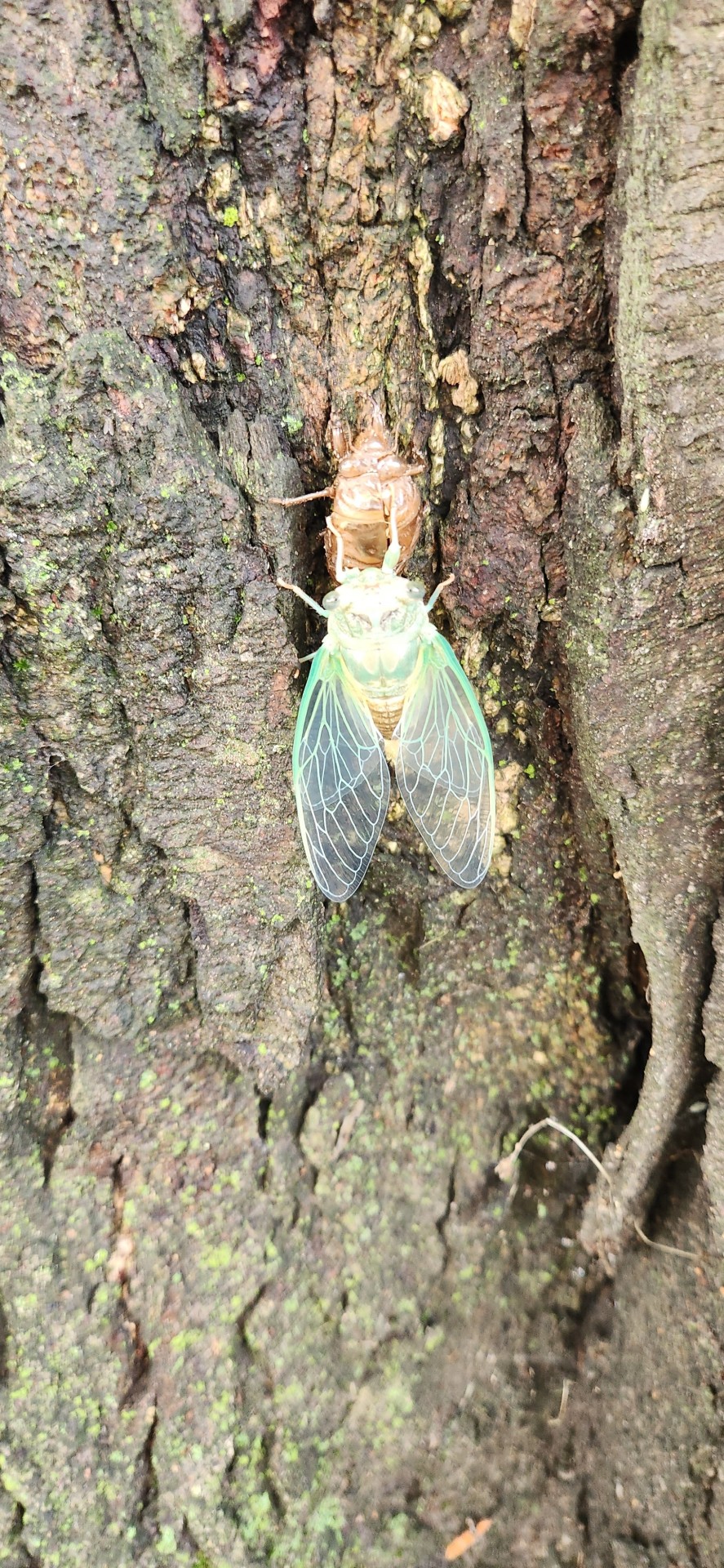
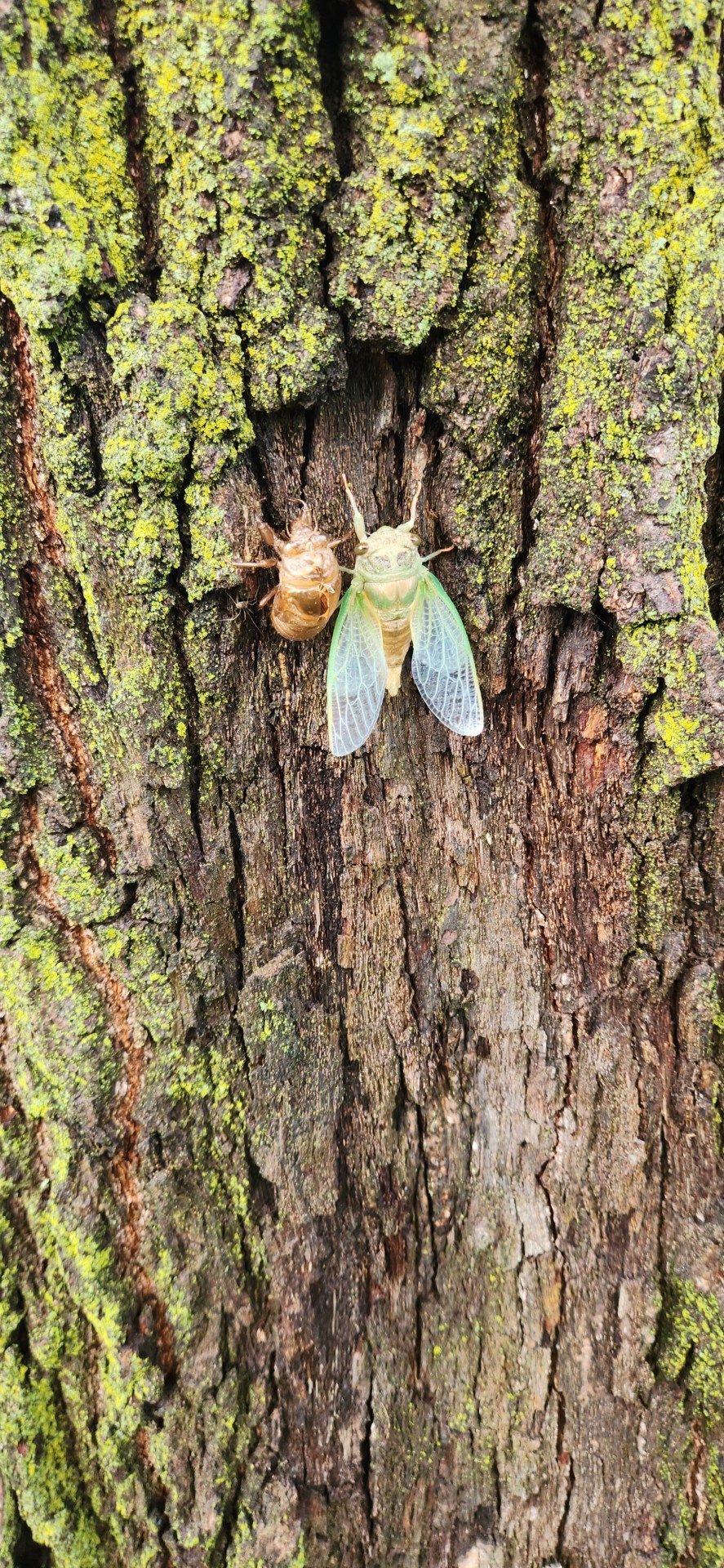
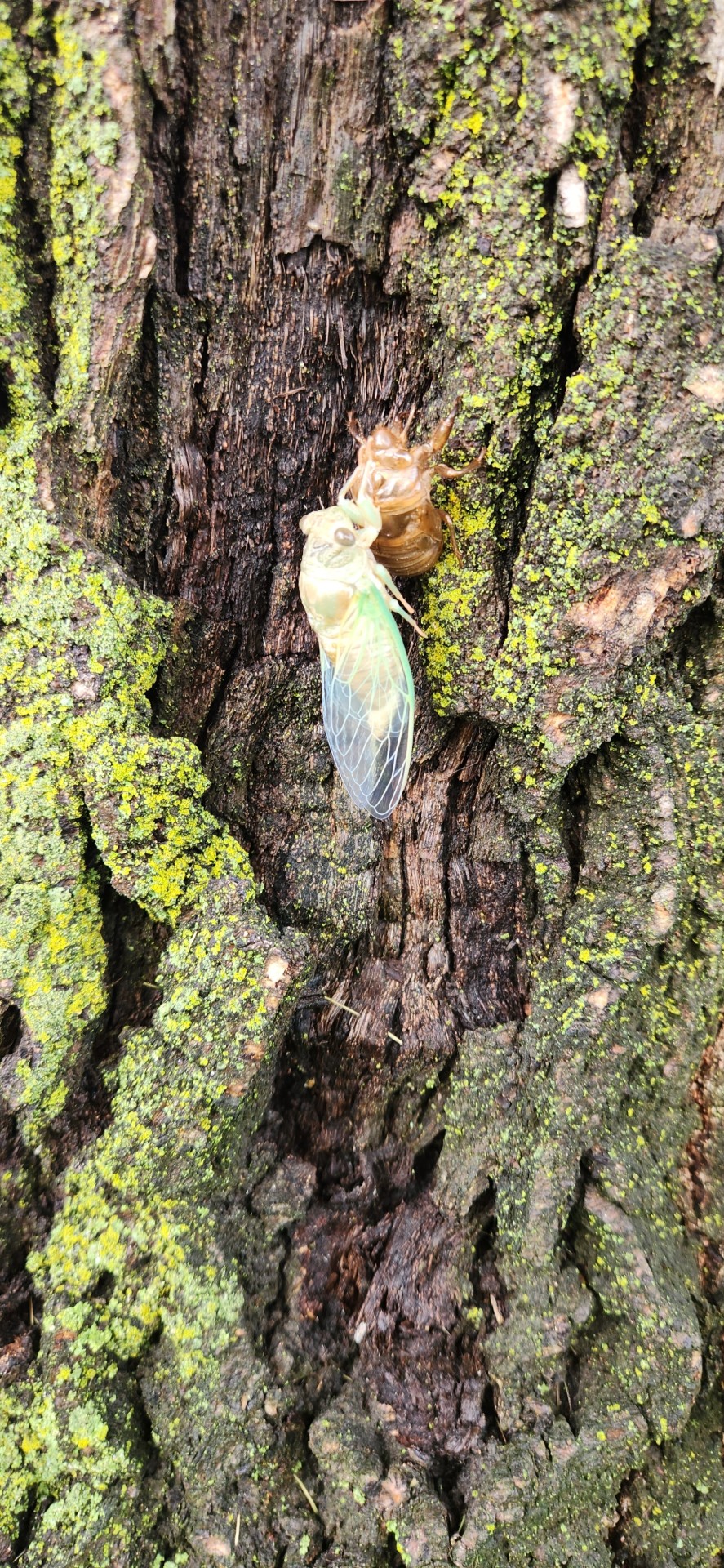
@onenicebugperday I forgot to post these lil pals about a month ago. Freshly emerged, chillin' and drying their wings in the breeze! I just really love cicadas!
you guys Need to start seeing bugs as animals im not even joking anymore. the second u start seeing them as tiny animals the more your world opens up and the more you accept different types of life Into that world. youll begin accepting that even life you cant understand is still worth living. and itll legitimately make you a better person. fuck
Making a game about bugs :] this account is for sharing progress related to that and to share the pixel bugs I'm making along the way. This is a sfw space for people who want to follow along with this project or just enjoy looking at bug art :)
![Making A Game About Bugs :] This Account Is For Sharing Progress Related To That And To Share The Pixel](https://64.media.tumblr.com/73d2c9043491f3fcd7cf105eb2432284/3a2872c64186e0d3-61/s500x750/581b39f6eaed3b61b5ea4ce199214a39c6869ec1.jpg)
![Making A Game About Bugs :] This Account Is For Sharing Progress Related To That And To Share The Pixel](https://64.media.tumblr.com/591aee494e3bf747a3cecc769f6c968c/3a2872c64186e0d3-c2/s500x750/a15c4e60a9937b1761fe21c1d56e6a04514b942f.jpg)
![Making A Game About Bugs :] This Account Is For Sharing Progress Related To That And To Share The Pixel](https://64.media.tumblr.com/23cd613d4a7f4439b397c93b8602529c/3a2872c64186e0d3-32/s500x750/d64ac15924dfdaefad2929dd504b744464f92756.jpg)
![Making A Game About Bugs :] This Account Is For Sharing Progress Related To That And To Share The Pixel](https://64.media.tumblr.com/933a4fee03bc65afd46803ecd6cd687a/3a2872c64186e0d3-e2/s500x750/bbdb8989be20055f99e79b105e019cd9bb0928dc.jpg)
Premise of game:
- Turn game on
- bugs come :]
- add new bugs to your collection
- time advances automatically, different bugs come depending on at time/date/ temperature/weather/biome, use bait or light to attract different types
- let bugs run in the background and keep u company while u work
- over 500 different bugs :] maybe more depending on how silly I get with it
